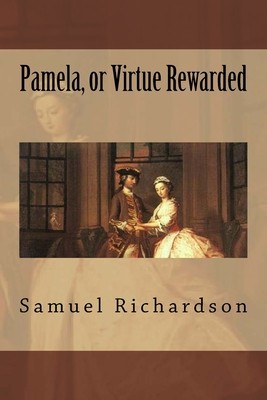
- We will send in 10–14 business days.
- Author: Samuel Richardson
- Publisher: CreateSpace Independent Publishing Platform
- ISBN-10: 1511567422
- ISBN-13: 9781511567428
- Format: 15.2 x 22.9 x 2.3 cm, minkšti viršeliai
- Language: English
- SAVE -10% with code: EXTRA
Reviews
Description
Samuel Richardson, the first, in order of time, of the great English novelists, was born in 1689 and died at London in 1761. He was a printer by trade, and rose to be master of the Stationers' Company. That he also became a novelist was due to his skill as a letter-writer, which brought him, in his fiftieth year, a commission to write a volume of model "familiar letters" as an aid to persons too illiterate to compose their own. The notion of connecting these letters by a story which had interested him suggested the plot of "Pamela" and determined its epistolary form--a form which was retained in his later works.
EXTRA 10 % discount with code: EXTRA
The promotion ends in 21d.17:17:10
The discount code is valid when purchasing from 10 €. Discounts do not stack.
- Author: Samuel Richardson
- Publisher: CreateSpace Independent Publishing Platform
- ISBN-10: 1511567422
- ISBN-13: 9781511567428
- Format: 15.2 x 22.9 x 2.3 cm, minkšti viršeliai
- Language: English English
Samuel Richardson, the first, in order of time, of the great English novelists, was born in 1689 and died at London in 1761. He was a printer by trade, and rose to be master of the Stationers' Company. That he also became a novelist was due to his skill as a letter-writer, which brought him, in his fiftieth year, a commission to write a volume of model "familiar letters" as an aid to persons too illiterate to compose their own. The notion of connecting these letters by a story which had interested him suggested the plot of "Pamela" and determined its epistolary form--a form which was retained in his later works.


Reviews